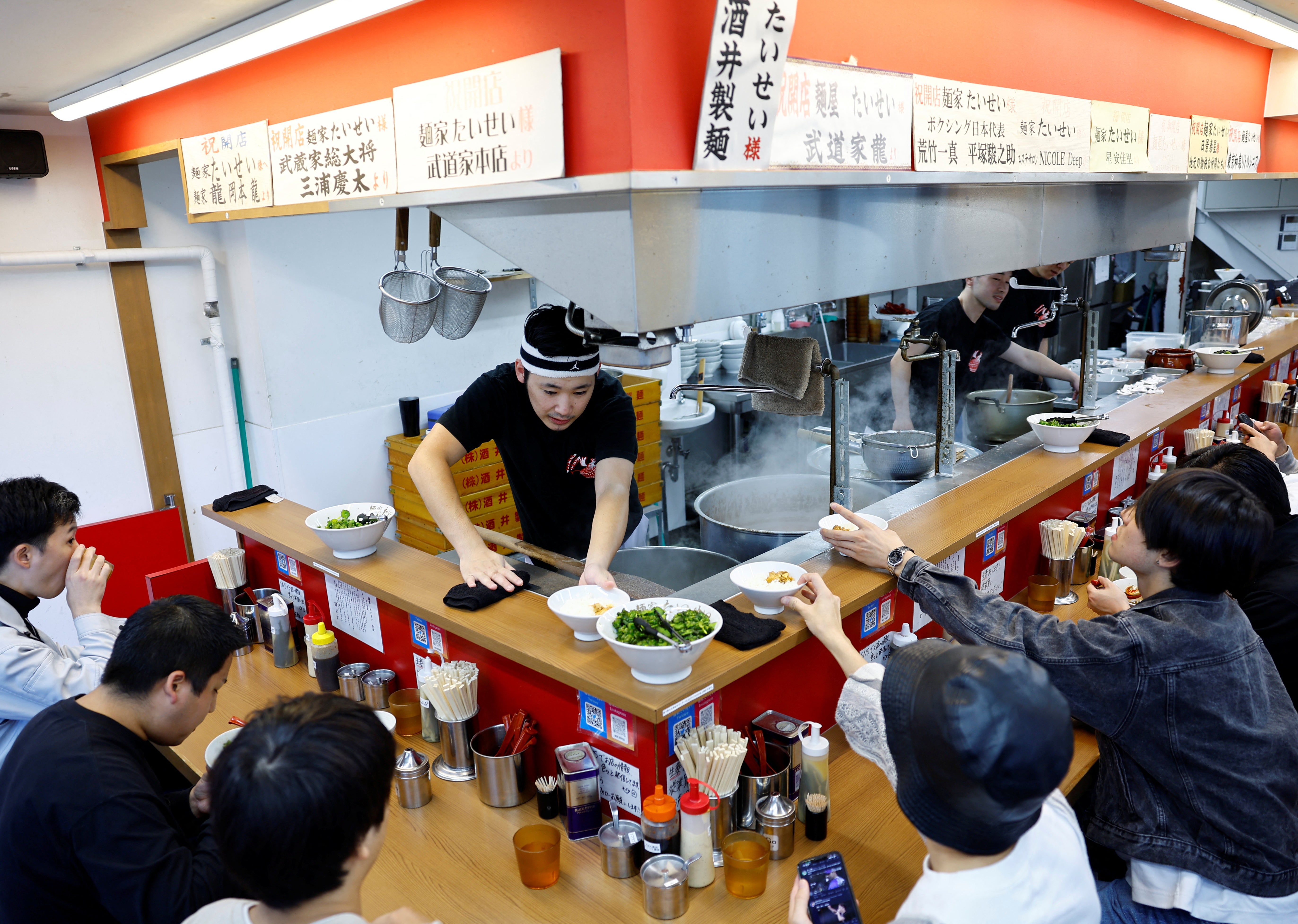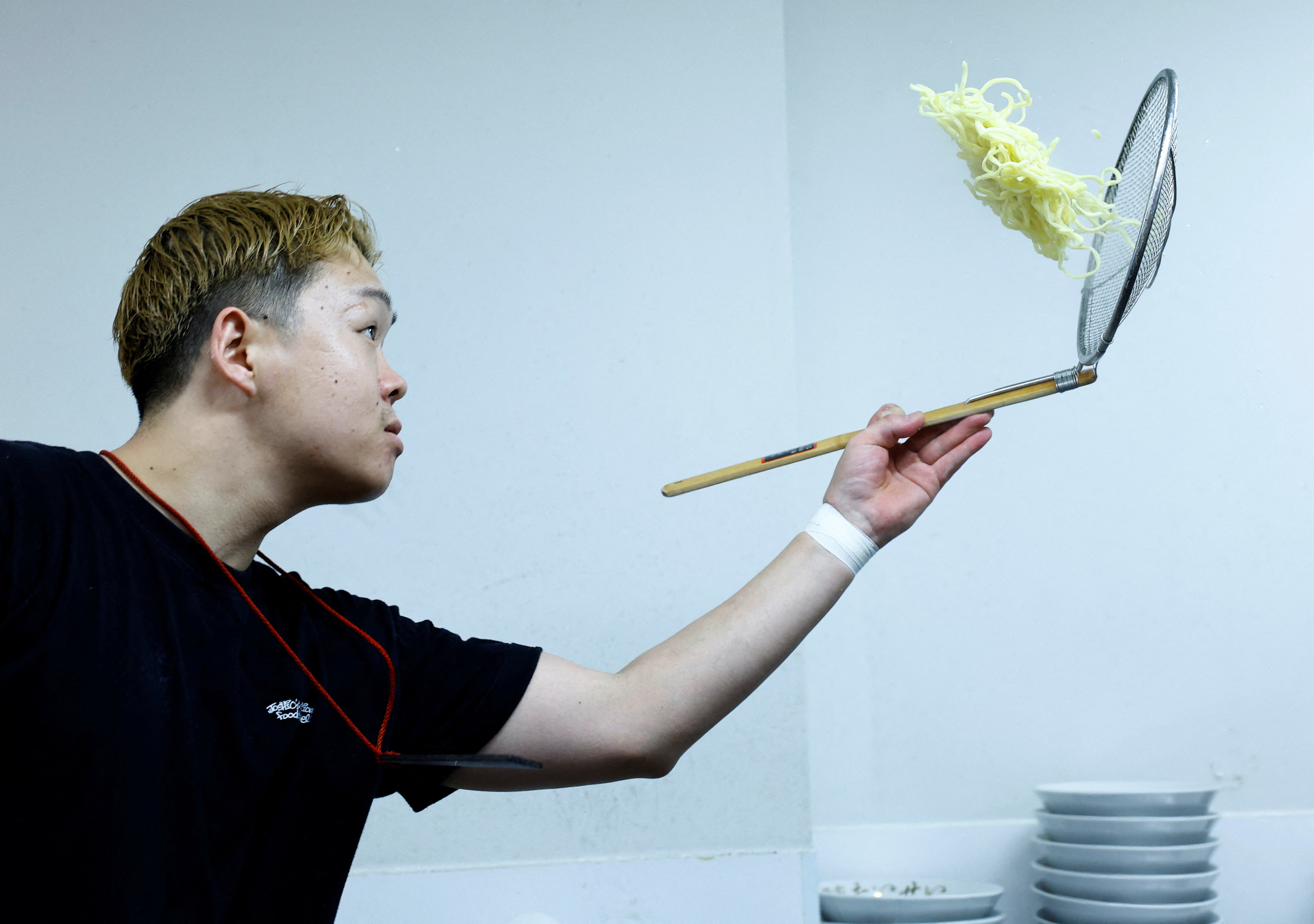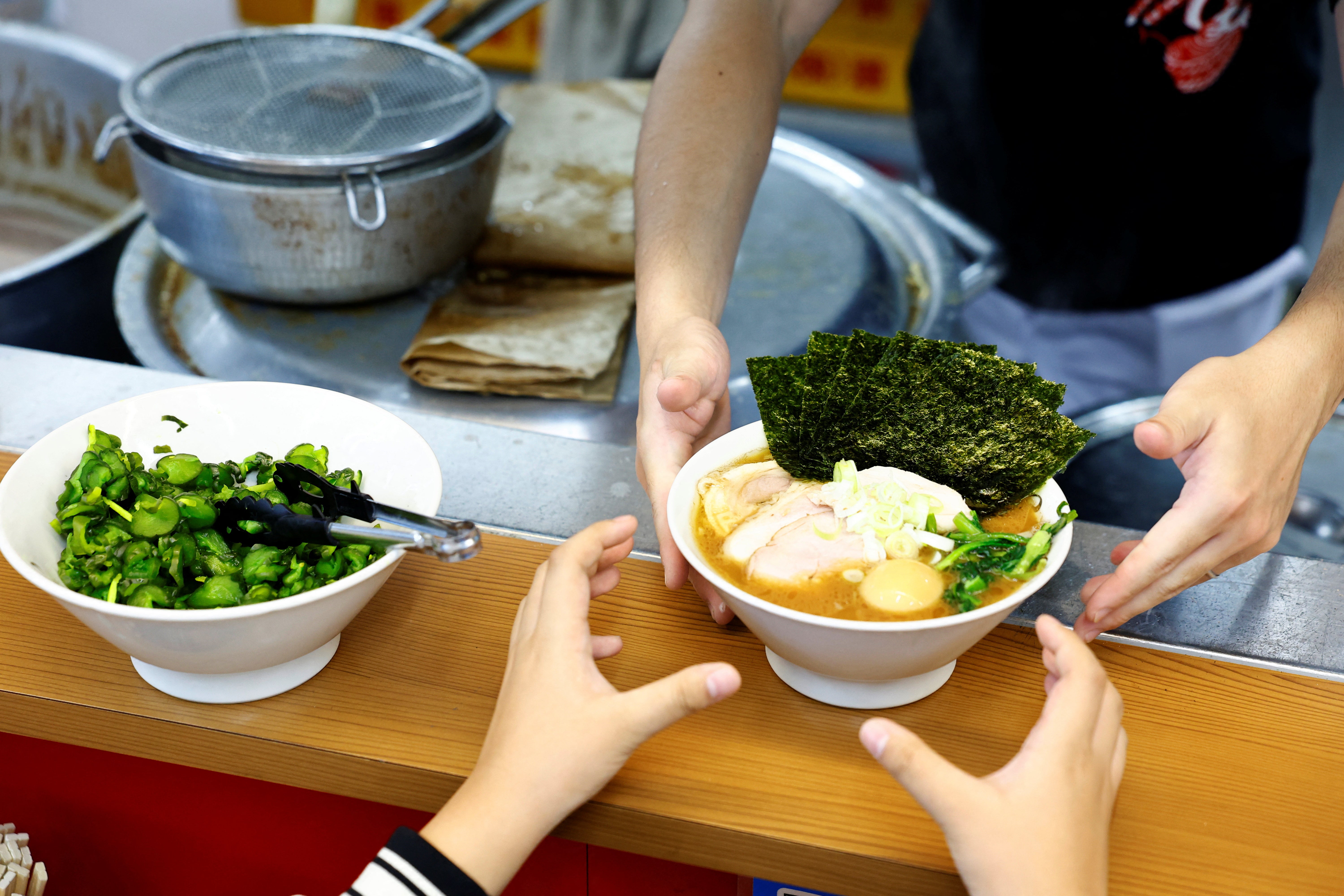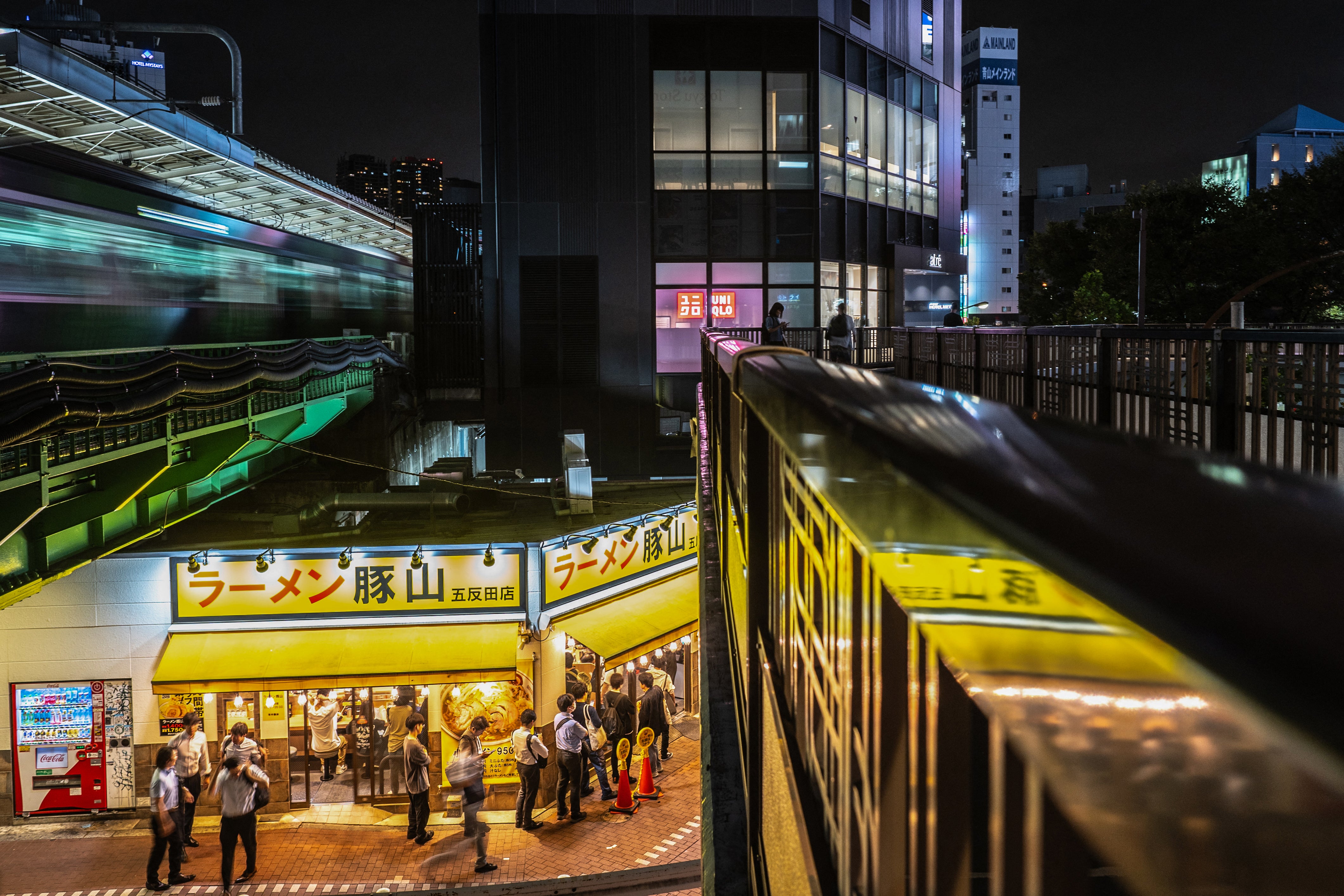The price of ramen is going up – Japan is starting to take notice
Ramen shops have traditionally offered cheap and tasty meals

Your support helps us to tell the story
From reproductive rights to climate change to Big Tech, The Independent is on the ground when the story is developing. Whether it's investigating the financials of Elon Musk's pro-Trump PAC or producing our latest documentary, 'The A Word', which shines a light on the American women fighting for reproductive rights, we know how important it is to parse out the facts from the messaging.
At such a critical moment in US history, we need reporters on the ground. Your donation allows us to keep sending journalists to speak to both sides of the story.
The Independent is trusted by Americans across the entire political spectrum. And unlike many other quality news outlets, we choose not to lock Americans out of our reporting and analysis with paywalls. We believe quality journalism should be available to everyone, paid for by those who can afford it.
Your support makes all the difference.Taisei Hikage is fighting a losing battle at his ramen shop - not to attract customers, but to keep a lid on the price he charges for Japan’s national comfort food in the face of an incessant rise in ingredient and fuel costs.
Since opening his shop in the west of Tokyo a year and a half ago, Hikage, 26, has raised menu prices three times but still struggles with rising costs. His top-selling “Special Ramen” is up 47%, selling for 1,250 yen ($8).
“Traditionally ramen shops were supposed to offer something cheap and tasty,” Hikage said between stirring big pots of broth and blanching noodles. “It’s no longer cheap food for the masses.”
The problems facing ramen vendors - a record number of shop operators are set to go bankrupt this year - reflect a cost-of-living crunch that has become a top issue for voters in Japan’s general election on Sunday.

The ruling Liberal Democratic Party of Prime Minister Shigeru Ishiba, a self-described ramen fanatic, and opposition parties have pledged various measures to offset rising costs for businesses and households.
Those efforts to control rising prices, in a land emerging from decades of deflation, could tip an election where opinion polls show the LDP - which has ruled Japan for almost all of the post-war era - might lose its parliamentary majority.
Hikage, who said he will be too busy working in his restaurant to vote, hopes the victors will consider introducing subsidies to offset rising costs.
His award-winning noodles remain in demand despite the repeated price hikes, with long queues in front of his shop day and night.
Some of his competitors are not faring so well: 49 ramen shop operators with debts of at least 10 million yen filed for bankruptcy in the first seven months of the year, on track to exceed the 2020 record of 54 bankruptcies, according to credit research firm Teikoku Databank.

Hikage prides himself on using mostly domestic ingredients, but many ramen restaurants rely heavily on imported materials like the flour to make noodles.
Japan’s import costs have risen as the yen has sunk. The currency hit a 34-year low against the dollar this year and has struggled to regain ground. Also boosting costs for ramen shops are higher energy and grain prices, triggered by Russia’s war in Ukraine, as well as rising labour costs.
The plight of Japan’s ramen shops illustrates a larger trend, as companies that fail to adjust to the era of inflation go under.
Nationwide bankruptcies in the six months to September jumped 18.6% from the same period last year to 4,990 cases, with a record number caused by inflation, said Teikoku Databank.
“Just like ramen shops, companies offering goods and services that are in demand are transferring costs to product prices and seeing their sales grow. Those struggling to pass on higher costs are being weeded out,” said Dai-ichi Life Research Institute’s executive chief economist Toshihiro Nagahama.

But Nagahama said politicians’ tendency to dish out support measures to win votes may be counterproductive in the long term.
“If too many ‘zombie’ firms, or companies that cannot raise productivity or wages, are kept alive, they could be a drag on the Japanese economy,” he said.
For now, Hikage said he will focus on serving quality dishes and hope the election can bring some kind of positive change.
“Our task now is to endure this and focus on offering something delicious, with our heads bowed to customers,” he said.
Join our commenting forum
Join thought-provoking conversations, follow other Independent readers and see their replies
Comments